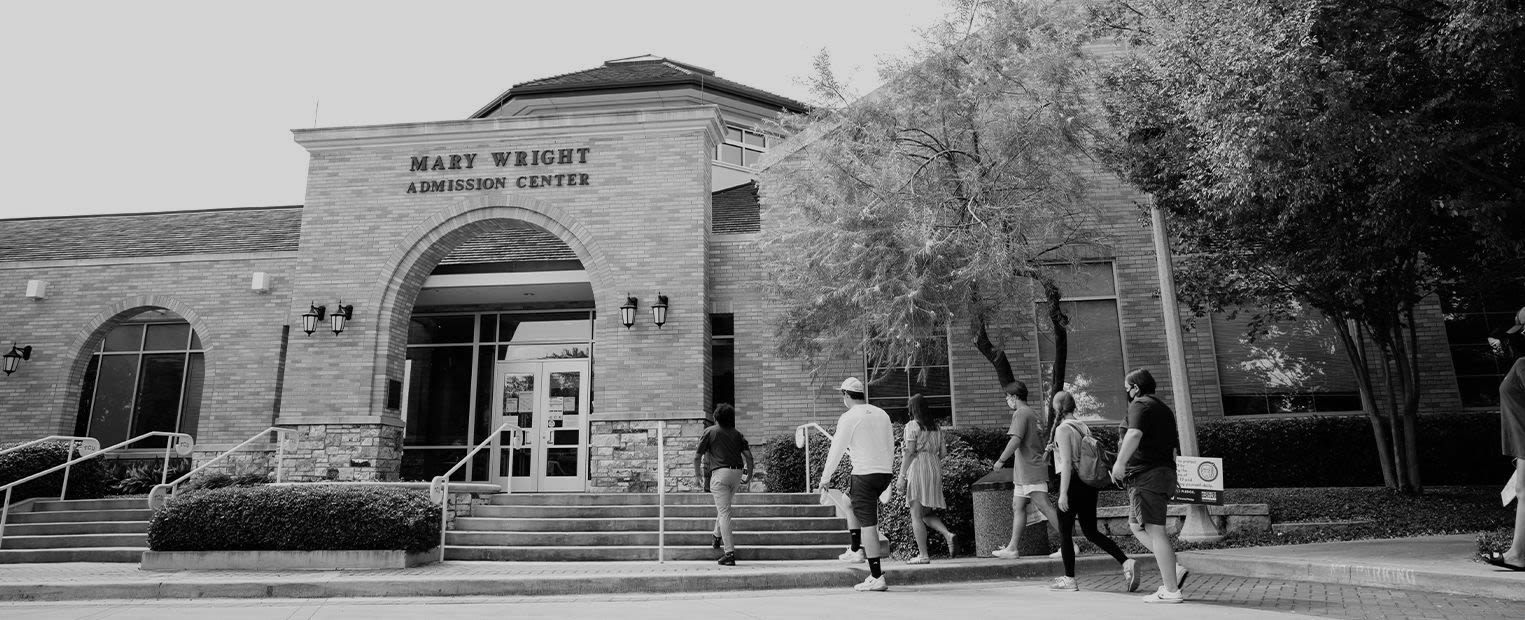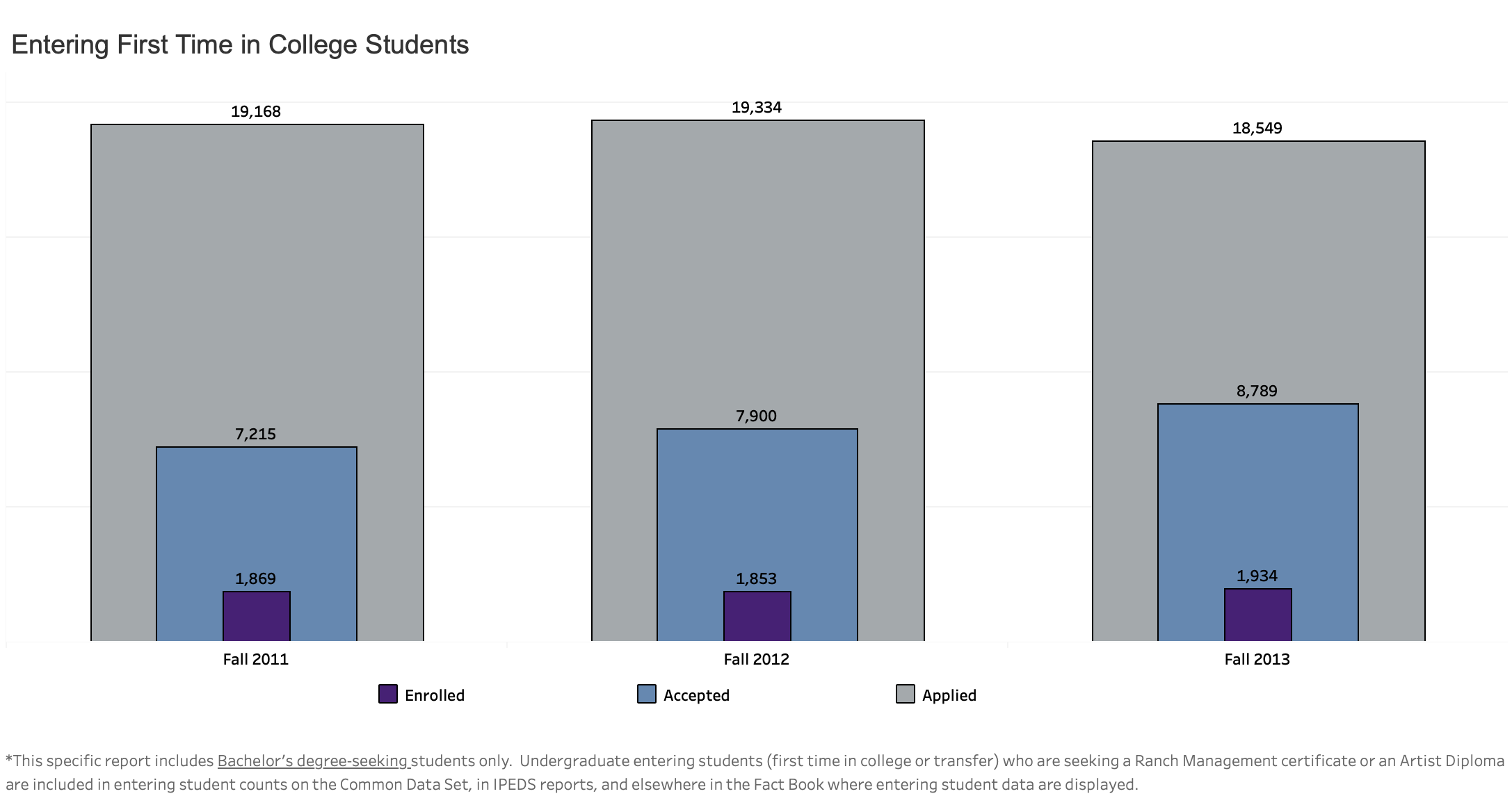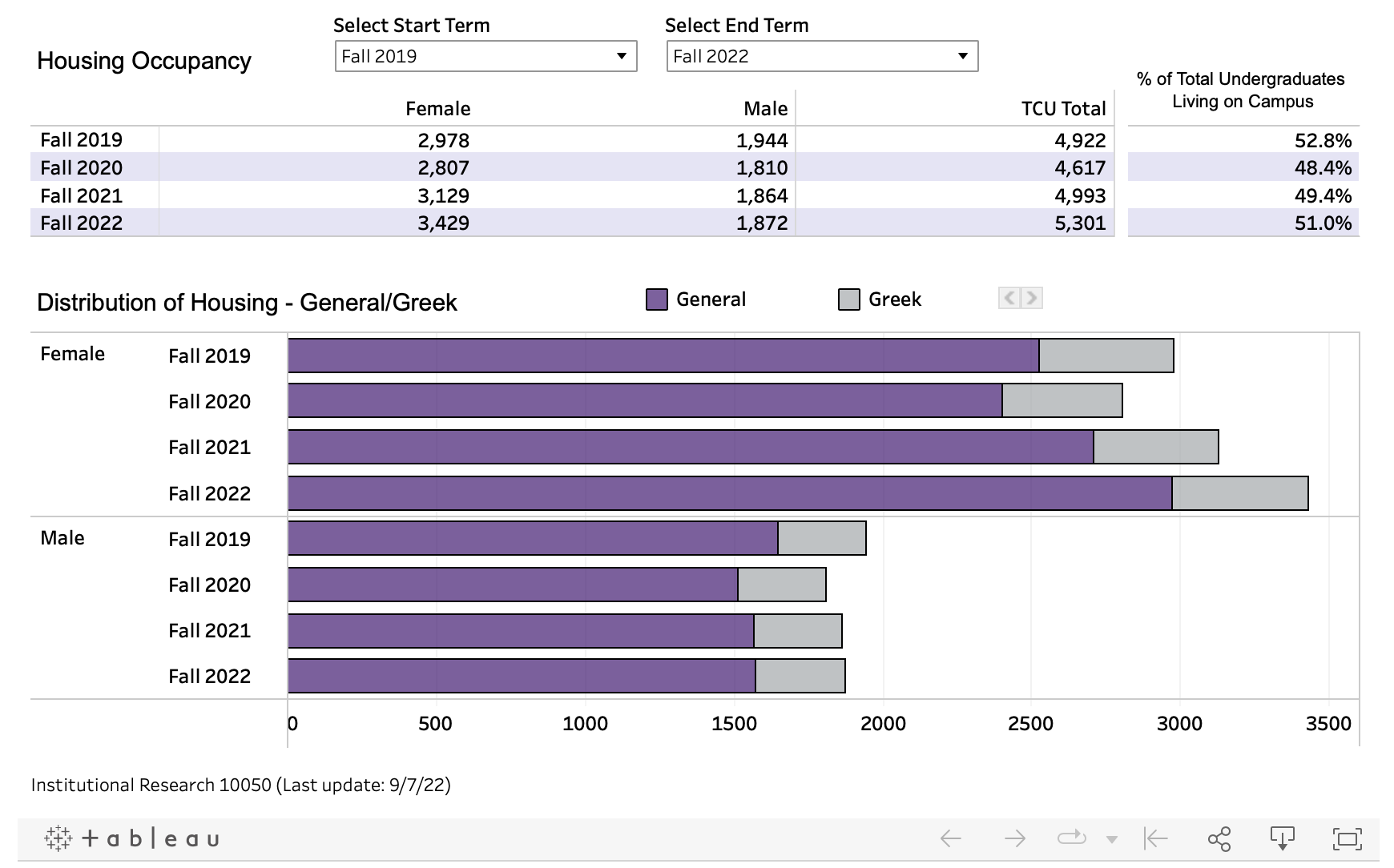The Evolution of TCU Student Admissions
How Texas Christian University has come to be, along with the future of what it will be

"No two years are ever the same."
Said by Dean of Student Admissions at Texas Christian University, Heath Einstein.
After an appearance in the 2023 Football National Championship, the TCU Horned Frogs were definitely collecting attention.
It all comes down to one game!
— Complex Sports (@ComplexSports) January 9, 2023
Georgia vs TCU for the national championship tonight, who ya got? pic.twitter.com/XWmNPbn2hv
Sports Illustrated mentioned in an article, "The Horned Frogs were the first team in Texas to make it to the National Championships since 1938."
The Horned Frogs suffered from a loss of 65-7.
But after national recognition, did this change student admissions for the upcoming academic year of 2023-24?
"We'll see if our appearance in the National Championship game has had a short term effect, zero effect, or a long term effect." Einstein said when referring to the nearing academic year of 2023-24.
In 2011, the TCU Horned Frogs won the Rose Bowl in Pasadena, California. The Horned Frogs went up against the Wisconsin Badgers. The Frogs pulled off a win of 21-19.
But what did this mean for the Horned Frogs then? Did student admission rates change for the university?
In the academic year of 2012-13, post-Rose Bowl, there were no major changes in admission numbers. This is due to the fact that students were applying to the university prior to the success of the football season, so there's no way of linking a connection between the two.
In the 2011-12 academic year, there was a slight increase in applicants, but overall, there was a decrease in yield.
Yield is the percentage of admitted students that actually enroll into the university. In the academic year of 2011-12, there were 19,168 students who applied, while, 7,215 were accepted. Compared to the following year of 2012-13, where 19,334 students applied, and 7,900 were accepted.
Credit: Texas Christian University, for providing Undergraduate Student Admissions Facts and Data.
Credit: Texas Christian University, for providing Undergraduate Student Admissions Facts and Data.
Was TCU affected by the Flutie Effect, post-Rose Bowl?

The Flutie Effect was started in the mid 1980s, when Boston College had a very famous win against the University of Miami, on a Hail Mary. The theory goes that this very win led to a spike in admissions. In two years, Boston College admissions shot up 30%, according to Forbes in an article on the topic.
This athletic achievement was thought to have led to an increase of student admissions at their university the following year.
The Flutie Effect is the increase in fame for the university due to athletic excellence. But currently, there is no evidence to whether this theory stands true or not.
All universities that have been so called "affected" by the Flutie Effect have all been universities already witnessing a steady increase, in terms of admissions.
The difference with TCU is that "Our applicants jumped after the Rose Bowl, and they stayed there." Einstein said.
As of April 2023, TCU is already witnessing a substantial jump in yield. Not only is the percentage of students who accepted their offer this year higher than last year. But it is also higher than the predictions stated for the academic year of 2023-24.
There is a delta, or rate of change, between what the admissions office predicted for this year, versus where numbers are at now. Keep in mind, this is still prior to the May 1 deadline for students to commit to the university of their choice.
Currently, TCU's acceptance rate for the upcoming academic year of 2023-24 sits at 40%. In previous years, TCU has not had to move to their waitlist, and they don't predict to this year either.
In addition to student admissions, comes the housing situation.
When asked about the current housing breakdown for undergraduate students, Einstein said, "I think we are at capacity, but I don't think we've exceeded it. There is no one in our first year class that we've had to turn away from the residence halls, but our goal is to not bring in any more students than we've had the last couple of years."
Courtesy of TCU Campus Housing Facts and Data
Courtesy of TCU Campus Housing Facts and Data
As of Fall 2022, 51% of undergraduate students reported living on campus. To break that down further, that means nearly all first-year and sophomore students are primarily living on campus, while juniors and seniors, who are given the option for off campus housing, are primarily living off campus.
One of those students is sophomore Ashton Bartolucci. Bartolucci lived in Sherley residence hall in Fall 2022, and now lives in Marion residence hall as of Fall 2023.
Bartolucci described the dorms as "clean, welcoming and upbeat." Bartolucci said his life in the residence hall has been everything positive.
When asked about his living quarters, Bartolucci said, "I had plenty of room and never felt like my roommates and I were too close in living proximity. It felt like what living in a dorm room was supposed to feel like.
"The one thing I will say is that I can definitely tell housing is filling up. I personally was in a forced triple my first year and have never seen an empty dorm room." Bartolucci added.
With the gradual influx of students attending the university, TCU is building a new residence hall that will be located behind the Neeley. Construction is set to begin spring 2023, and will not be completed until the academic year of 2025-26.
In addition to the new residence hall, there will also be a new dining hall on the east side of campus as well. This dining hall will be available to all students with a dining plan.
Not only has TCU seen growth amid the entirety of the university, but professor and former John V. Roach Dean Homer Erekson said he has also seen it within the Neeley School of Business.
"We almost doubled," Erekson said. "Clearly there was a huge jump in the amount of students as a whole...but not just in business majors, but in business minors as well."
After being Dean of Neeley for 11 years, averaging about 65-70 hour weeks, Erekson was present for a tremendous amount of change, not just in Neeley, but at the university as a whole.
Erekson witnessed over the years more women enter Neeley primarily declaring a major like marketing, while there was a higher proportion of men declaring majors like accounting and finance.
Erekson also reported a significant change in the diversity of the university over the years: whether by gender, race, or ethnicity.
Erekson said, "when you have incredible growth in admissions, you are able to be more selective, so the university was able to see the quality of students continue to grow and grow.
"You want students to succeed, but you also want students that are going to go out and change the world," Erekson added.
Overall-- Erekson argued that more than anything TCU is looking for leaders and as the university continues to grow, the more and more leaders they see walk the sidewalks of Texas Christian University.












